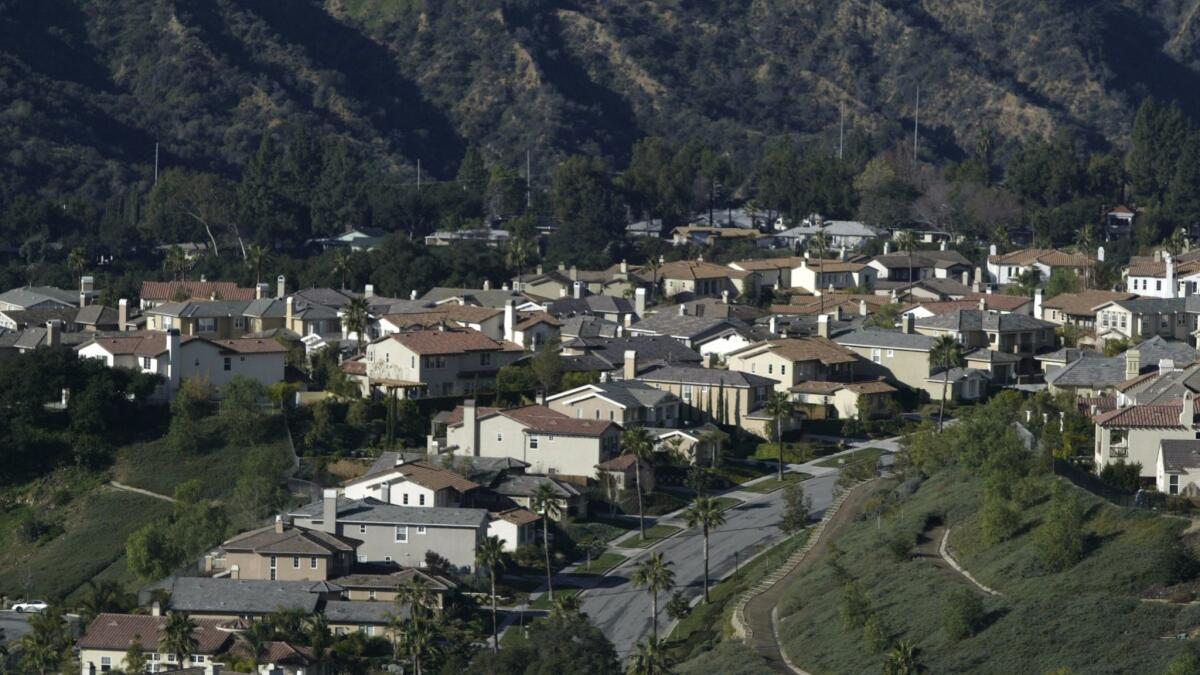Dark Web drug network operated from gated community in Altadena, feds say

- Share via
A group of Southern Californians have been accused of operating a multimillion-dollar drug distribution network on the “dark web” from a gated community in Altadena, federal prosecutors said.
In an indictment unsealed in the Eastern District of California on Thursday, authorities charged William James Farber, 37, and Bryan Antony Lemons, 29, both of Los Angeles, with conspiracy to possess and distribute a controlled substance and conspiracy to launder money.
Also charged with conspiracy to possess and distribute controlled substances were Richard Thomas Martinsen, 29, of Studio City; Michael Angelo Palma, 22, of Los Angeles; Michele Pickerell, 47, of Altadena; and Faysal Mustafa Alkhayat, 31, of Woodland Hills.
According to investigators, the group ran two underground drug distribution businesses. The first, PureFireMeds, operated on the dark web market Silk Road. The second, HumboldtFarms, operated on AlphaBay from August 2013 to May 2017.
The dark web is a part of the Internet that is not accessible by traditional search engines but instead requires specific software to access.
In the time it operated, the group completed more than 78,000 orders for marijuana, oxycodone, hydrocodone, psilocybin (also known as “magic mushrooms,”) Ecstasy, LSD, Xanax and ketamine, the indictment says.
The group assembled and mailed an estimated 1,000 packages a week from Pickerell’s home in La Viña, a 271-home gated community in Altadena. According to the criminal complaint, the security guard there was familiar with Pickerell and the other conspirators, whom Pickerell called her “boys.”
In the four years their network operated, the group sold drugs for more than $7 million worth of Bitcoin, the semi-anonymous digital currency, prosecutors said.
The Bitcoin then was exchanged for cash through intermediaries, the criminal complaint said, including through an MIT student who told the Boston Globe in 2013 that the problem with the currency was its “reputation” with the black market economy.
The defendants would make cash deposits in a main bank account in amounts under $10,000 to avoid federal reporting requirements and then withdraw money the same day in smaller amounts from other bank locations, officials said.
Investigators’ painstaking work to identify the conspirators and build a criminal case was outlined in court documents.
In 2014, DEA agents discovered a clandestine drug lab in Cambridge, Mass., where dozens of U.S. Postal Service receipts were found. The labels were addressed to Farber at two separate California addresses, the complaint said.
Farber had been sending the person in Cambridge Bitcoin in exchange for cash, authorities said.
Investigators then began to investigate Farber using the Bitcoin information they found and concluded that he had been the person behind PureFireMeds, a vendor on the dark web that had finalized nearly 5,500 orders for drugs between 2013 and 2014.
In 2016, officials learned Farber was headed to Jamaica on vacation, authorities said. Upon his return, agents had Homeland Security personnel search his cellphone, where they found pictures of him and his girlfriend with various drugs. In one photo, the two were doing whippets (inhaling nitrous oxide from small metal canisters) while on a boat, authorities said.
Later that year, investigators were granted search warrants for Farber’s email, which uncovered even more dealings under PureFireMeds, the complaint said.
But it wasn’t until September 2016 that authorities were able to connect PureFireMeds — which was shuttered after agents closed Silk Road and arrested its creator — to its new iteration, HumboldtFarms, authorities said.
Someone on the website Reddit suggested that the owner of HumboldtFarms was the same person behind the defunct PureFireMeds. So police ordered eight grams of marijuana to see who would deliver it.
But the vendor was careful. The return address on the drug shipment was fake, and the package was dropped off at the Post Office discreetly in the back of the business.
It took months of Postal Service workers recognizing familiar labels on similar packages, reviews of security camera footage and surveillance by authorities to identify the package deliverers were Palma and Martinsen and eventually to cement their connection to PureFireMeds and HumboldtFarms, the complaint said.
Farber also appeared to be operating a marijuana grow house out of Northridge, where Department of Water and Power officials told investigators that the building had been using nearly twice as much energy as a Costco, according to the complaint. Farber had been running a marijuana dispensary to launder proceeds from the other enterprises, officials said.
Further connecting most of the defendants were their friends or friends of friends on Facebook and Instagram, according to the complaint. Records showed several of them purchased the shipping labels that were used on the drug shipments while others were linked to the network through property and phone records.
If convicted, all six face up to 45 years in prison and $5 million in fines. Farber and Lemons face up to an additional 20 years in prison for the money-laundering charge, prosecutors said.
For breaking California news, follow @JosephSerna on Twitter.
More to Read
Sign up for Essential California
The most important California stories and recommendations in your inbox every morning.
You may occasionally receive promotional content from the Los Angeles Times.











